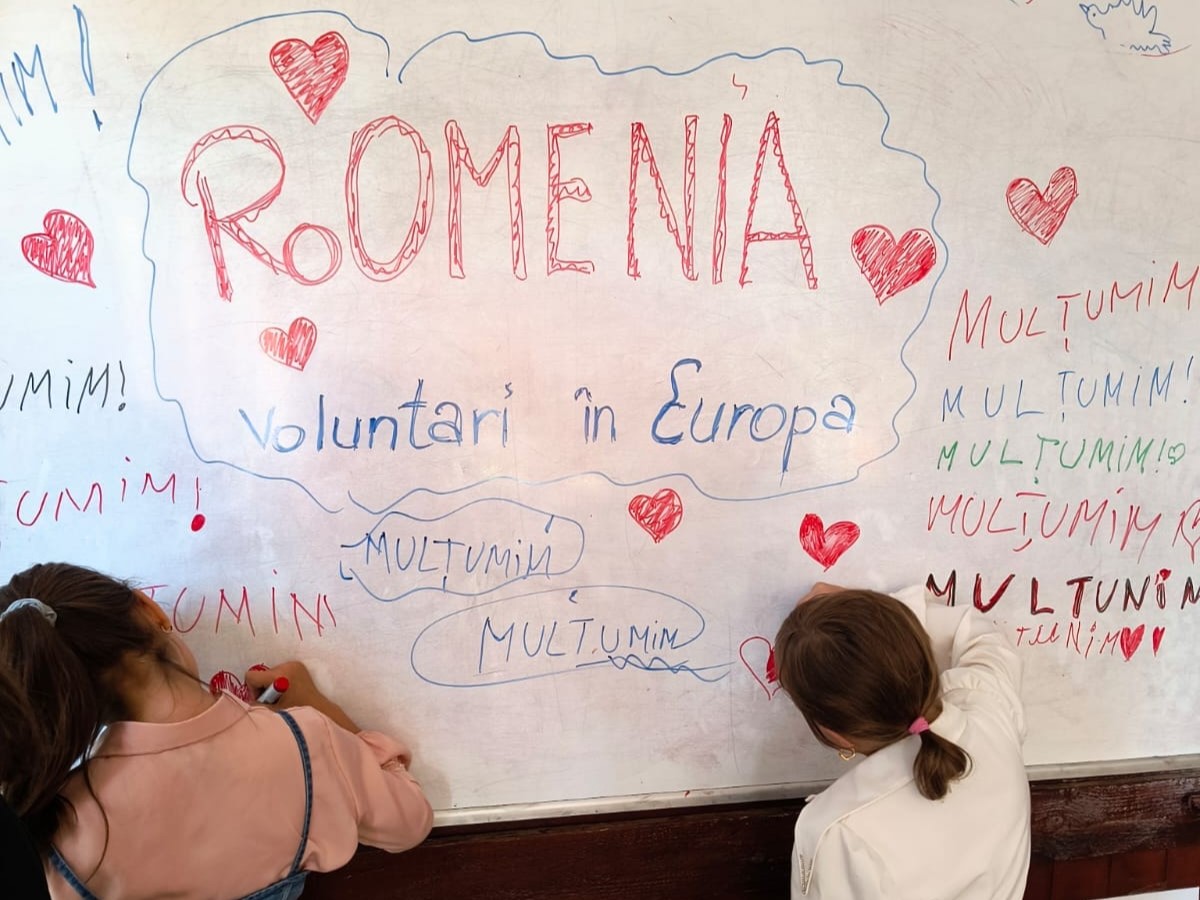
Photo: Facebook page of RoOmenia
The Facebook group "RoOmenia" connects tens of thousands of Romanian citizens scattered across Europe, providing concrete help – from housing to medication – and contrasting the loneliness of many expats. An initiative launched by a group of lorry drivers
(This article was originally published by El Confidencial in the framework of the PULSE project. It was produced in collaboration with Sebastian Pricop from the Romanian media outlet Hotnews.)
In the run-up to the 2019 European elections, a Romanian politician made some unflattering comments about the profession of lorry driver. "The guys insisted on teaching him a lesson", recalls 56-year-old Adriana Muresan. This female Romanian lorry driver, who lives in Spain, was speaking to El Confidencial by phone. The offended Romanian truckers determined to vote en masse.
"But it wasn't that simple", says Muresan. For the drivers on the road, it was inconvenient to get inside nearby cities with their trucks in order to vote. Nor could they easily just park up and walk.
So Muresan asked around some Romanian Facebook groups for people who might give them a lift. Plenty of volunteers were forthcoming. Muresan began to put the truck drivers in touch with these Romanians from the diaspora. A Facebook group was created.
After the elections, the group remained active. "We realised how strong we were, and that we had brought together the whole [Romanian] diaspora in Europe", says Muresan. The drivers started sending each other invitations: "'I'm going to be in Berlin at the weekend, if anyone comes over, I'll share a shot of orujo'. Or, 'I'm in Germany, in such-and-such area, if a driver wants to come fishing, I'll invite him'. Living outside your country, the lorry is your home", says Muresan. "And although we have integrated, we all miss our homeland."
Five years later, that one-off initiative is now a mutual-aid group with more than 148,000 members: the RoOmenia Association - Volunteers in Europe . It is where Romanians living abroad can lend each other a hand when they are in need.
The kinds of services rendered can be simple, such as offering help with language and transport to a lorry driver who needs to go to the dentist in a German village. But the help can be substantial too: providing shelter to temporarily homeless seasonal workers; finding work for someone who is struggling financially; or putting abuse victims in touch with the relevant local organisation.
"There are wonderful stories," says Adriana Muresan. "Among ourselves, we call ourselves 'RoOmenia' [a play on the Romanian word for 'humanity' or 'goodness'], because it's about giving without the expectation of anything in return. We want to change the country through deeds, showing that acts of generosity can transform you. [...] We have sown seeds in Romania and I am very proud."
A boost from the pandemic
An estimated 4.5 million Romanians – a quarter of the total population – are expatriated across Europe. For countless Romanian households, life is a succession of goodbyes, patient waiting, and video calls. Some 13.8 percent of Romania's children – more than half a million – had one or both parents working abroad between 2021 and 2022, according to Save the Children Romania.
"The only thing I regret in life is taking grandchildren away from their grandparents", says Dragos, who has been running a hardware store in Spain for two decades. He belongs to a generation afflicted by guilt. In Romania it is known as the "Italy Syndrome": the anguish experienced by those who care for other people's relatives while neglecting their own.
Most of these people were invisible until the pandemic. Then they became indispensable, says Adriana Muresan. In Germany, flight restrictions were even lifted on seasonal workers so that the asparagus harvest would not go to waste. It was during the pandemic that the Romanian expat group exploded.
"I had no idea there were so many Romanian seasonal workers," says Muresan. "These people were left on the street with nothing.” She recounts the upsetting experience of being contacted by 38 female seasonal workers in the Italian Alps. They had been left "with no shelter, no money, nowhere to go and no transport, during lockdown". They asked for help in the online group.
It triggered an overwhelming response: "Romanians opened the doors of their houses: first in Italy, then in Spain”, says Muresan. “They kept calling me: ‘I have two places, I have seven’..." She says that the first thing to do was to ask for the homeless Romanians' ID cards and pass them to the consulate to check that they had no criminal record. After all, "they were going to be taken in by someone". She is candid: "There were a few problems of cohabitation, but they were solved.”. Muresan estimates that around 1,500 people were taken in, mostly seasonal workers.
Sabina Dinita is founder of "Cutiei cu Medicamente" (Medicine Box). This organisation, created in 2017, uses the RoOmenia group to purchase and transport medicines that are in short supply in Romanian hospitals, especially oncological treatments for children. Sitting in a Bucharest cafe one evening in late June, Dinita explains how it works: "They [RoOmenia] have a really big network and we always know if someone is leaving a country to return to Romania. I buy medicines from Western Europe and bring them back to Romania using volunteers who drive trucks."
For his part, Nicu, a 45-year-old Romanian, discovered RoOmenia through an online car forum when a user asked for help and was directed to the group. "It's odd that, just as people like bad things, it's the same with good things – you involuntarily join them", he muses. "It's a huge community.” He says that the real volunteers are just a small group. "The rest are like me, so far. They are there to have a lifeline, just in case."
Next step: tackling loneliness
Adriana Muresan says that RoOmenia currently works on the basis of a map of volunteers. "If something happens in their area, we tag them.” Each country has a coordinator with hundreds of volunteers who make themselves available 24 hours a day and via chat for emergencies.
Muresan is often asked how she has managed to get so many people involved: "It's easy, everyone has a place here and they do whatever they want to do. If animals are your thing, we have it. If you’re interested in medicines for children, we have that. If you want to go out at Christmas with some cakes for truck drivers who are alone in a car park, that’s possible too. Everyone can do whatever they want to do and are able to do".
Muresan is currently taking permanent leave from her job on the road. But, despite her obvious organisational skills, she says that she has not been asked to go into politics. Nor would she do so. "I would lose my freedom", she says.
One of RoOmenia's latest actions took place during the 9 June European elections. Group members provided transport to enable seasonal workers in Germany and some Danube river boatmen to get to the polls.
Muresan also recounts a much harder recent case, which involved the consulate: help was given to a Romanian victim of abuse in Abu Dhabi. Muresan explains that the group only approves requests that are "urgent, important and verified". The aim is to prevent fraud and avoid wasting the time of the volunteers.
RoOmenia's next campaign will target Romanian home-help workers. The plan is for volunteers who live nearby to meet them over a coffee and have a chat. "These people need to talk and speak in their language", explains Adriana Muresan. "To heal their souls and their loneliness a bit."
This article was produced in the framework of PULSE, a European initiative coordinated by OBCT which supports cross-border journalistic collaborations.
blog comments powered by








